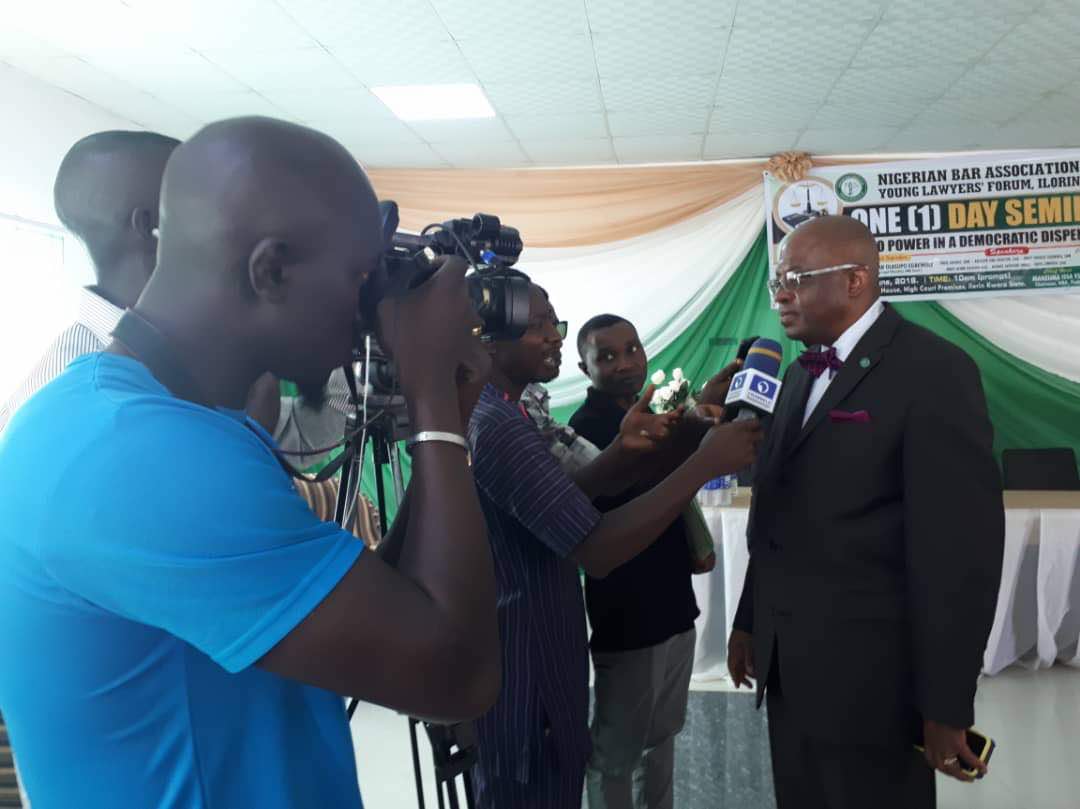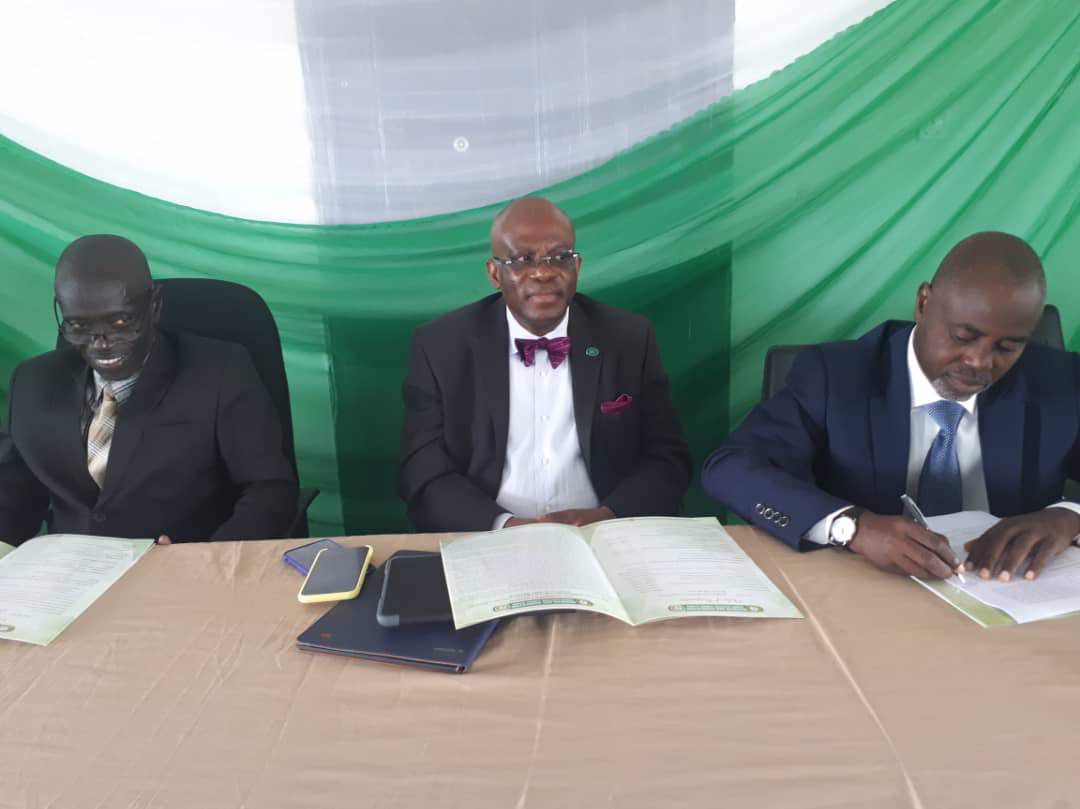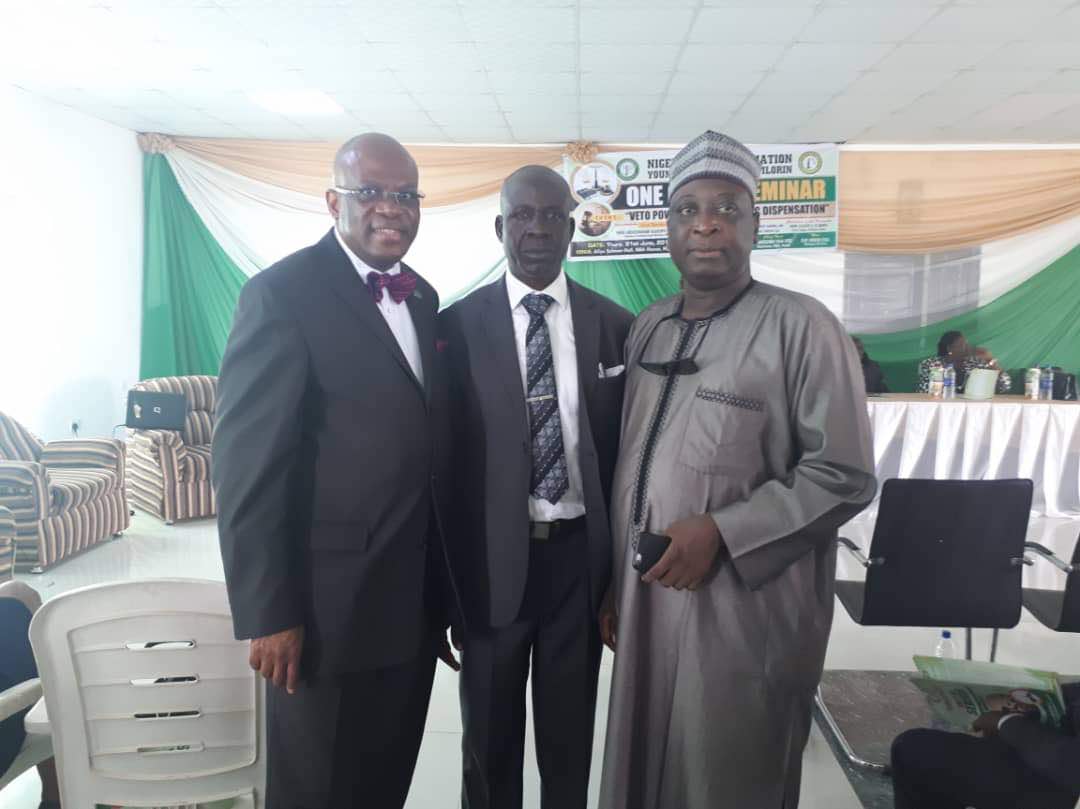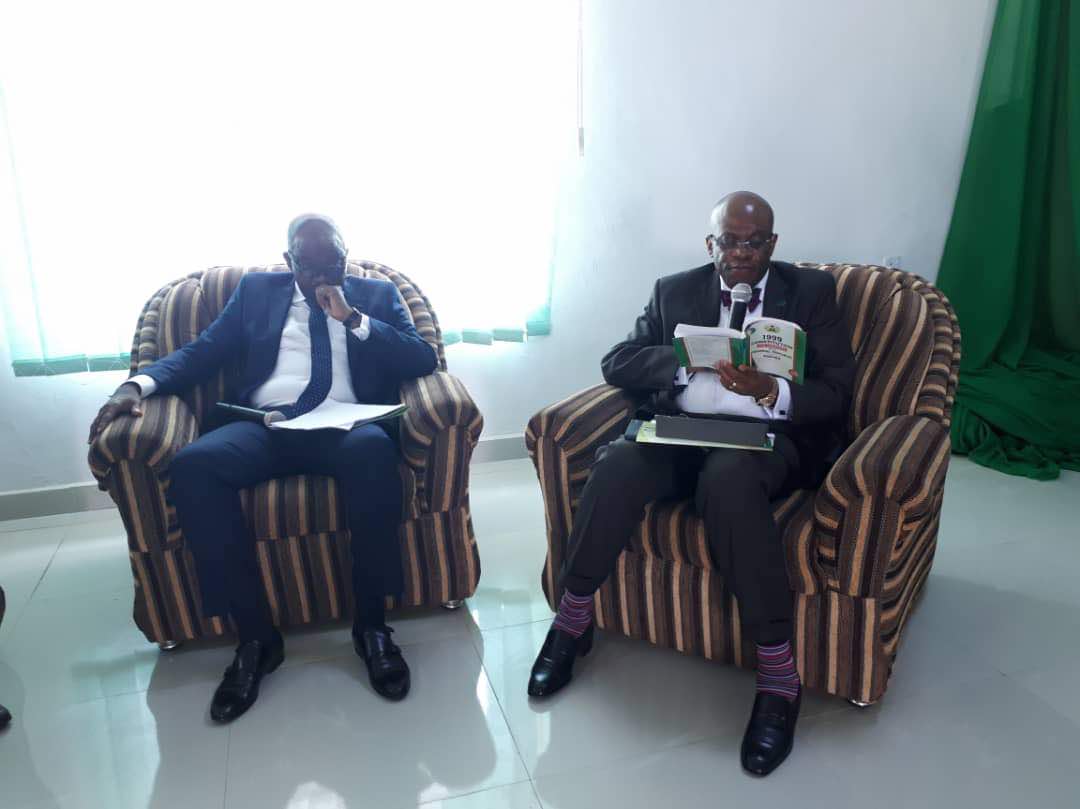
Earlier on, astute litigator and strategist; Paul Usoro, SAN, spoke at the NBA Young Lawyers Forum, Ilorin Branch one Day Seminar. In a Panel chaired by Mallam Yusuf Ali, SAN represented by K. Keleja, SAN, Mr. Usoro discussed the topic- “Veto Power and the Role of the Executive”.

Paul Usoro reiterated that the essence of veto power is to provide checks and balances in the management of the affairs of the country. He noted that there are three types of veto powers, viz: Absolute Veto, Pocket Veto and Line item Veto. Absolute veto occurs when a President vetoes the entire bill. Line item veto means to veto specific provisions of the law. Pocket veto, which is an indirect veto, occurs when the President neither assents to the bill nor vetoes the bill.

Elucidating on the veto power of the President as enshrined in the 1999 Constitution of the Federal Republic of Nigeria as amended, Mr. Usoro meticulously considered the provisions of Sections 58 (4) and 59 of the 1999 Constitution of the Federal Republic of Nigeria as amended. He pointed out that, “the veto power granted to the President is not absolute in the essence that it can be overridden by 2/3 members of the National Assembly. The difficulty in overriding the President’s veto by the National Assembly, according to him, is usually in having 2/3 members of the National Assembly to pass the bill into law after the President has vetoed the bill”.

Furthermore, he said that while the constitution does not require the President to state his reasons for vetoing a bill, the practice and normal thing to do is for the President to state why he does not agree with a particular provision of the bill or why he is vetoing the bill. According to him, “if the reason stated by the President resonates with the public, it actually can turn the public against the legislature, and even if the legislature overrides the President’s veto, public opinion traditionally will be against the legislature”.
The Learned Silk goes on to state that it makes sense to have veto power, and a President who has real conviction should go ahead and exercise his power of veto. He concluded his presentation by advising that it is always wise to exercise veto power very cautiously, because the legislature still has the responsibility to make the law.
